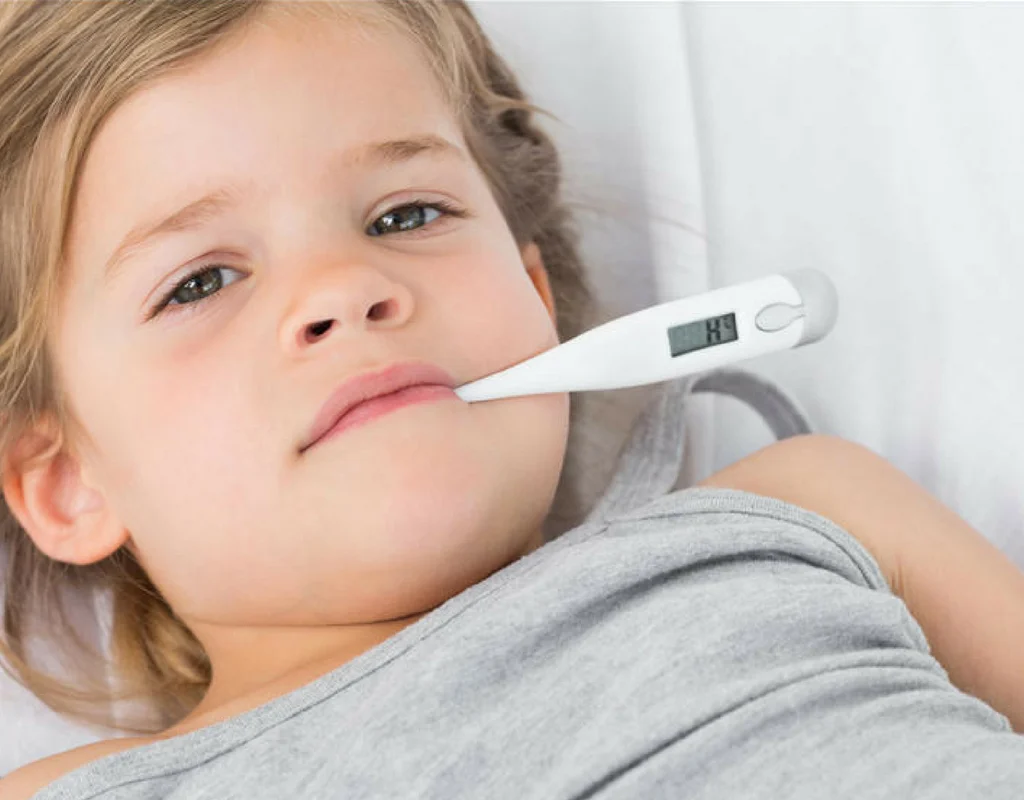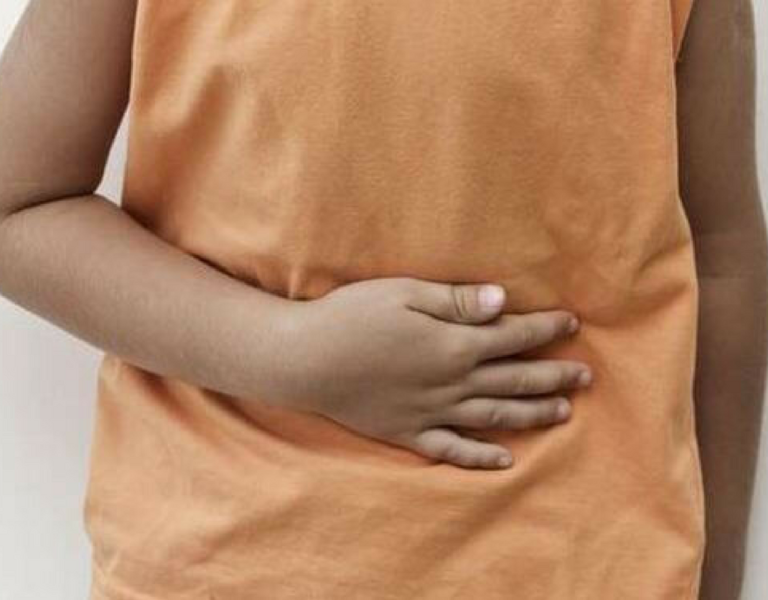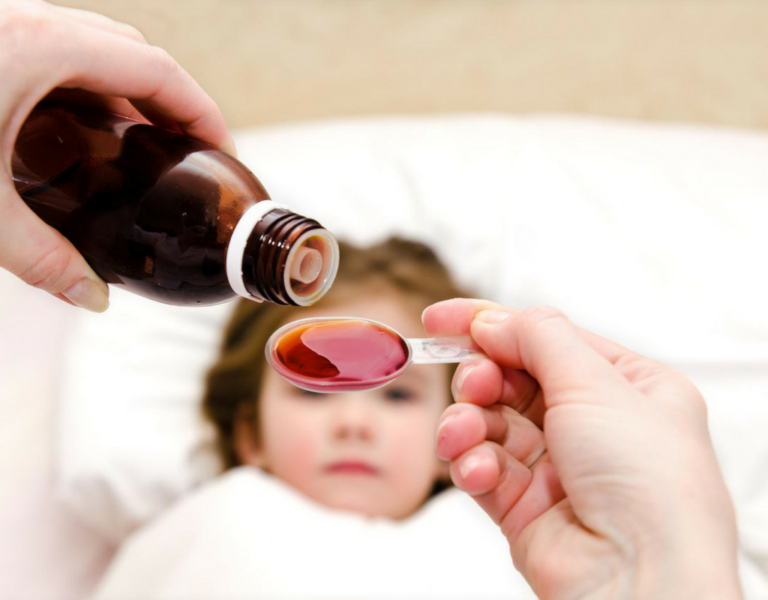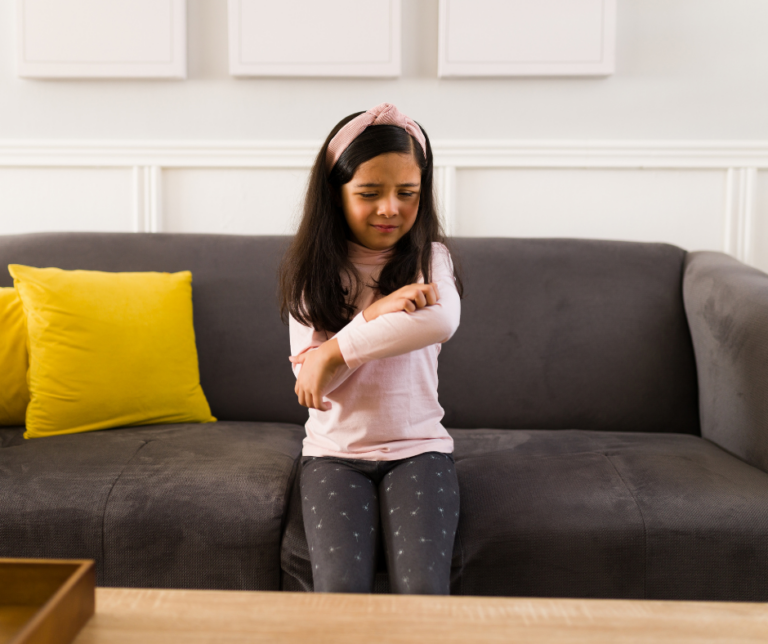Fever is the number one concern for which parents call us and the number one symptom for which we see patients in the office. Fever can be frightening and concerning for parents, but it doesn’t have to be.
What is a fever?
Fever is a body temperature that is higher than normal. Most pediatricians consider any temperature over 100.3 F (38 C) to be a fever. Fever is usually a sign that your child is fighting an infection. In children, viral infections (like the common cold) are the most common cause of a fever. Fever is a sign that your child’s immune system is working and doing what it is supposed to do.
How do you measure a fever?
We recommend using a digital thermometer (not mercury) for measuring your child’s temperature. The temperature can be measured rectally, orally, or underarm (axillary). Under 3 years of age the best method for taking the temperature is rectally. This is easy to do and does not hurt the child. You can ask one of our nurses or doctors to show you how to take the temperature rectally if you would like. Over 3 years old, most children can cooperate enough to have their temperature taken orally. An underarm temperature is an alternative in children over 3 months of age; however this method is not as accurate as an oral or rectal temperature. We do not recommend using tympanic (ear) thermometers, pacifier thermometers or other methods as they are much more likely to be inaccurate. Regardless of the method you use to take the temperature, it is important to tell us what method you used if you are reporting the fever to us.
What do you do for a fever?
Fever does not have to be treated. Treating a fever gets rid of the fever but not the underlying cause of the fever. However, treating a fever usually will make your child feel better. Medications commonly given to treat fever are acetaminophen (Tylenol) and ibuprofen (Motrin or Advil). It is important to know the correct dose of these medications for your child. CHILDREN UNDER THE AGE OF 3 MONTHS SHOULD NOT RECEIVE ANY MEDICATIONS FOR FEVER, UNLESS YOU HAVE FIRST TALKED TO YOUR PEDIATRICIAN. Children under the age of 6 months or children who have been vomiting or are dehydrated should not receive ibuprofen. Aspirin should never be used in children for fever.
When should I call my doctor?
Call us right away if;
- Your child is younger than 3 months and has a rectal temperature higher than 100.3
- Your child looks very ill, is very drowsy, or is very irritable.
- Your child has been in an extremely hot place, like an overheated car (fevers from external sources are more dangerous than fevers from an infection).
- Your child has a condition that suppresses immune response, such as sickle-cell disease, diabetes, cancer or is taking steroids.
- Your child has a seizure.
- Your child has other symptoms such as a stiff neck, severe headache, severe sore throat, severe ear pain, severe abdominal pain, unexplained rash, repeated vomiting and diarrhea, or pain with urination.
- Your child has not had the scheduled vaccinations for his/her age.
- Your child has a fever for more than 3 days.
- You have any concerns or feel that your child is very sick.
How high can fever go?
The height of the temperature does not necessarily mean that your child is sicker or is in more danger. Fevers of 102-103 are very common in children. Your child’s fever will not “keep going up and up” unless your child has been exposed to an external source of heat, like an overheated car.
There is no specific temperature at which we get worried. THE MOST IMPORTANT THING IN EVALUATING FEVER IS EVALUATING THE CHILD. If a child has a temperature of 104 and is happy, smiling and eating well, it is very unlikely that the child has a serious underlying cause of the fever. Alternatively, if a child has a fever of 100 but is irritable and inconsolable, we should be called right away. However, most children and adults feel worse with high temperatures. That is why we recommend treating fever.
Isn’t fever dangerous?
NO! Fever is not dangerous. Fever is good. It is a sign that your child’s body is working well. Fevers of up to 105 do not cause brain damage. It is true that some children have seizures with fever. However, this is more related to the child’s genetic make-up than the level of the fever. Some parents believe that all children will have a seizure if the fever gets high enough. This is not true. Let us know if you have a family history of febrile seizures or other seizure disorders.





